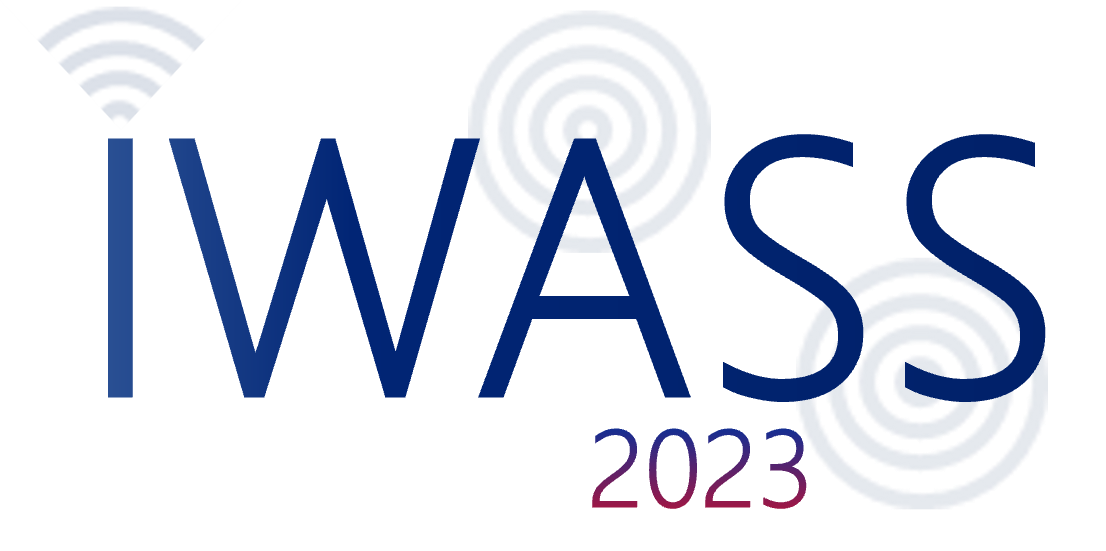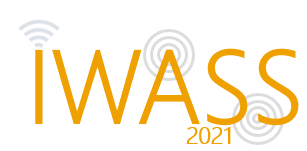Navigation
IWASS 2025 - Florida, US.
IWASS 2025 - ESREL, Norway
IWASS will hold a special session and a panel at eSREL 2025
We look forward to your participation!
ESREL is the key annual event for meetings and knowledge exchange in the area of risk assessment, risk management, and optimization of the performance of socio-technological systems in Europe, and among the most important internationally.
Join us at the Stavanger 2025 conference where we will bring the European Safety and Reliability (ESREL) and Society for Risk Analysis Europe (SRA-E ) conferences together under one roof at the University of Stavanger, Norway.
Panel Session: Safety, Reliability, and Security(SRS) of Autonomous Systems
Autonomous systems are becoming increasingly prevalent in many sectors, including transportation, healthcare, energy, and manufacturing. With their growing prevalence come significant challenges in ensuring these systems operate safely, reliably, and securely (SRS), especially when interacting with dynamic and uncertain environments. The risks associated with malfunction, system vulnerabilities, and unintended behavior make it imperative to focus on methods and technologies that can guarantee the robustness, trustworthiness, and ethical operation of such systems. As such the International Workshop for Autonomous System Safety (IWASS) was created to facilitate discussions and knowledge exchange across industries and regions. It has since been collocated with ESREL three times with support from ESRA (Dublin 2022, Southampton 2023, Krakow 2024). In 2025 we expanded upon our participants from North America, so the workshop will be co-located with RAMS in January.
To continue our good relationship with ESRA and ESREL, key experts will be invited to discuss autonomous systems SRS from an interdisciplinary and cross-industrial perspective. The panel is expected to present the results from IWASS discussions and make them more accessible to a broader audience. Participants may present additional thoughts on the discussions and workshop outcomes.
Invited Speakers:
Special Paper Session: Safety, Reliability, and Security (SRS) of Autonomous Systems I
At ESREL, IWASS organizers held a special paper session. We invite you to review the Conference Proceedings for:
Evolving Perspective of Safety, Reliability, and Security of Autonomous Systems – Findings from IWASS 2024.
Andrey Morozov, Joachim Grimstad, Camila Correa-Jullian, Marilia Ramos, Ali Mosleh, Spencer August Dugan, Ingrid Bouwer Utne and Christoph A. ThiemeThe Challenges of Building Trust in Autonomous Navigation Systems: A Perspective on the Tester
Chanjei Vasanthan, Koen van de Merwe, Tom Arne Pedersen and Jon Arne GlomsrudSafety Argumentation for ML-Enabled Perception Systems for Autonomous Trains State of the Discussion and Perspectives Carsten Thomas and Mirko Conrad
Assuring Safety of AI-based Systems: Lessons Learned for a Driverless Regional Train Case Study
Marc Zeller and Ronald SchnitzerFrom Nobel Prize(s) to Safety Risk Management: Lessons learnt from 2018 Uber collision for their application to autonomous train systems Sanjeev Appicharla
Please contact: Joachim Grimstad
joachim.grimstad@ias.uni-stuttgart.de for more information.
Session Organizers
Thieme, Christoph A., christoph.thieme@ntnu.no, SINTEF
Ramos, Marilia, marilia@risksciences.ucla.edu, University of California Los Angeles
Utne, Ingrid B., ingrid.b.utne@ntnu.no, Norwegian University of Science and Technology
Mosleh, Ali, mosleh@ucla.edu, University of California Los Angeles
Morozov, Andrey, andrey.morozov@ias.uni-stuttgart.de, University of Stuttgart
Invited Speakers - ESREL Panel 2025
Prof. Dr.-Ing Dirk Söffker – University of Duisburg-Essen
Prof. Dr.-Ing. Dirk Söffker is Chair of Dynamics and Control at the University of Duisburg-Essen and has been a full tenured professor for over 20 years. Since 2023, he also serves as the Head of the Department of Mechanical and Process Engineering and as Vice Dean of the Faculty of Engineering. His research spans modern control theory—including observer design and model-free approaches—human interaction with safety-critical systems, and the safety and reliability of technical systems. Since 2001, he has expanded his focus to cognitive technical systems, emphasizing human supervision and the development of autonomous, learning- and planning-capable machines. With more than three decades of academic service, Prof. Söffker has supervised over 50 PhD theses and remains actively involved in advancing interdisciplinary research at the intersection of control, cognition, and safety
Prof. Dr. Ingrid B. Utne – NTNU
Prof. Dr. Ingrid Bouwer Utne is a Professor at the Department of Marine Technology, NTNU, where she performs research on risk assessment and modeling of marine and maritime systems. Dr. Utne is a Principal Investigator and Project Manager of the ORCAS and Safeguard research projects, which focus on supervisory risk control, bridging risk modeling with control systems theory and AI, aiming to enhance safety and intelligence in autonomous systems. In 2024, she was awarded an ERC Advanced Grant (BREACH) on autonomous systems safety.
Dr. Maria Chiara Leva – TU Dublin
Maria Chiara Leva is the lead of the Human Factors in Safety and Sustainability Research Group. And co chair of the Master for Occupational Health and Safety and Human factors in Technological University Dublin. She is the cochair of the technical committee for Human Factors and Human reliability analysis for the European Safety and Reliability Association. Chiara is the coordinator since January 2021 of a Large Marie Curie Training Network on collaborative Intelligence for Safety Critical Tasks called “CISC” also promoting the role of Female early stage researcher in this area (www.cisproject.eu ). She received the award as leader of the best multidisciplinary research group in TU Dublin and In 2016 she was awarded by Enterprise Ireland and the National Digital Research Centre a Female founder competitive Start fund for her Campus Company Tosca Human Factors Solutions. Dr Leva has more than 80 publications on Human Factors, Operational Risk Assessment and Safety Management in Science and Engineering Journals, she is a member of the editorial board for two of those journals.
Marc Zeller works as a Senior Key Expert at Siemens Foundational Technologies in Munich. His research interests are focused on the safety assurance of AI-based systems as well as the efficient and effective development of dependability-relevant systems using model-based engineering techniques. Moreover, he is co-lead of the Siemens wide research program “Engineering and Validation of Intelligent Systems”. Marc Zeller received a diploma in Computer Science from the Karlsruhe Institute of Technology (KIT) in 2007 and obtained a PhD in Computer Science from the University of Augsburg in 2013. With over 10-years’ experience in different industrial domains, such as automotive, railway, avionics, or industry automations, he has been involved in various industrial projects as safety expert and is author of over 70 international publications.














